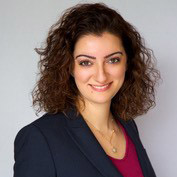Duke Weekend Executive MBA Student Blog

Lessons Learned from Organizing Our Class Service Project
This project was an opportunity to deepen the relationship with our peers and the relationship with the community, but it is also an opportunity to deepen the relationship with the institution and future generations of students.

Over the past year, we have been working together to plan the Weekend Executive MBA class service project. In our last blog, we shared our personal connections to service and what inspired the event. We partnered with Rise Against Hunger to hold a meal packaging event. The Class of 2024 raised more than $4,000 dollars to fund the meals. Then, more than 50 of our classmates and staff packaged more than 10,000 meals to be delivered around the world.
We sat down to talk about the priorities and challenges of being the first Weekend Executive MBA class to organize a service project, how our classroom learnings added a fun element to the project’s execution, and the legacy of service we hope to create.
Collier: What were some of the key priorities in your mind as we selected the project and involved our classmates? And how did you balance those priorities?
Bella: My first priority was to get a service project that would include as many students from our cohort as possible. There were some projects that I looked into that only required about a dozen people, but that would imply a smaller splash, so to speak. I wanted to ensure that the service project’s mission was something that we can all support. Having something that we can all advocate for made it easier for us to get the cohort excited about this particular class service project. Lastly, coordinating a time slot of a few hours in the midst of a jam-packed residency weekend with the help of our Program team was a priority. We wanted as many participants as possible without people having to choose other planned events during the residency weekend.
Do you think that there were any unexpected challenges in getting the project off the ground? Were there any challenges we overcame as a team or things that you would have done differently that you would pass on to the next person trying to plan a class service project?
Collier: The first unexpected challenge for me was how difficult it was to pin down the right project for us. All those priorities that you just described—how do we make sure that all the people that want to be involved are included, do we have enough people to do the project we want to do, do we have too many people—were crucial in helping us balance the level of engagement with the level of need.
I quickly came to appreciate why no Weekend Executive MBA class had done this before. It was challenging to find the right balance for the project. We had to find a project or organization needing a lot of help for a service commitment. But once we found that balance with Rise Against Hunger, I thought things went well.

My best advice to future cohorts is to engage the faculty and staff early in the process. We probably would have gotten to a decision faster by tapping into the knowledge and experience of those at Duke—the staff and faculty – earlier. One of the things that impressed me was how willing the staff was to help with this. The staff and faculty are active in the community and have deep ties. Once we leveraged their experience, we started to see success in planning our project.
Another major challenge was gauging interest in the project to ensure we could fulfill our commitment. We had a core group of very passionate supporters beyond our initial group that took the lead on planning the project, but we had a hard time finding the right way to engage with the rest of the class to measure support. We initially tried surveys, but we could have done more early on to explain why were putting the surveys in front of them and why it mattered. We needed to personalize the message, and give it a story.
What ended up working for us was to make a personal appeal to our classmates by telling them face-to-face that the project is benefitting the community, it’s a good team-building exercise for us, and it’s an opportunity to establish a legacy for Weekend cohorts. I think that is honestly what sold a lot of people—the realization that this has never been done before, and this is our opportunity to do something meaningful together.

Bella: When it came to planning this service project, I thought it was a great challenge. It really tested the Team Fuqua mentality and collaborative way of attacking this challenge. I personally thought of it as an opportunity to create memories for and with my cohort. But now that we have laid out some fundamental learnings, I am hoping that this creates a really amazing ripple effect of kindness and impact for future cohorts.
Collier: As a class liaison, you more than anybody, are in a position to pass the torch to the next generation of Weekend Executive MBA candidates. What do you feel like you’ve learned through this process that you would want to pass on to future generations of students?
Bella: I think there are tangible learnings and there are some intangible takeaways. First, the impact is there – we packed more than 10,000 meals and raised over $4,000. This specific service project emphasized some of the key learnings from our Operations class. We established stations that packed meals and kept track of the cycle times and throughput rates. We were able to apply several concepts so seamlessly and made those foundational operations concepts ‘stick’ (thank you Professor Fernando Bernstein!). I think the other tangible thing is that this service project was a chance for us to deepen the impact we have on the community.
We also really enjoyed the company of the collective cohort – it was fun to see people work together and help each other from one station to the next. It was a chance to connect with people in ways that you didn’t have an opportunity to before, whether that was in class, on a team project, or at the JB Duke. This was just a deeper way of connecting with our cohort.
In the future, I’d encourage anyone hoping to plan a service project to invest time in learning from the challenges we shared. In addition, taking a more personalized approach such as talking to classmates about the importance and value of the project helped emphasize the impact we were hoping to make. This all started with a genuine idea and Team Fuqua brought it to life!

Collier: Thank you for all of the work that you put into getting this off the ground and for passing this on to the future Weekend Executive MBA generations. That was something that our class was very excited about—the opportunity to pass something on, not just in the 10,000 or so meals that we packed, but also that this blueprint for service will be passed on.
I agree that this project was an opportunity to deepen the relationship with our peers and the relationship with the community, but it is also an opportunity to deepen the relationship with the institution and future generations of students. There’s a whole lot of context that’s packed into being a member of Team Fuqua, and this now becomes another piece of what it means to be a member of the team.




